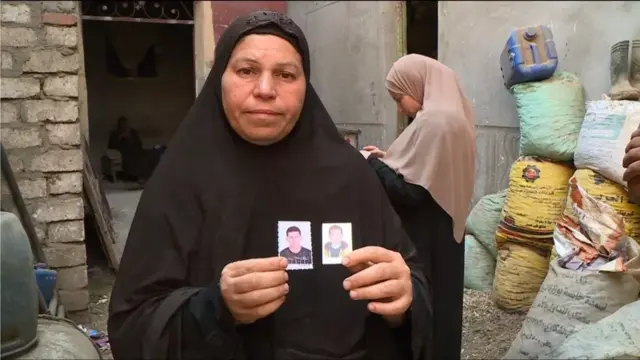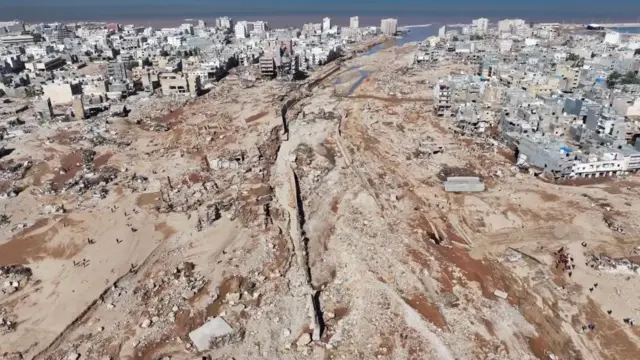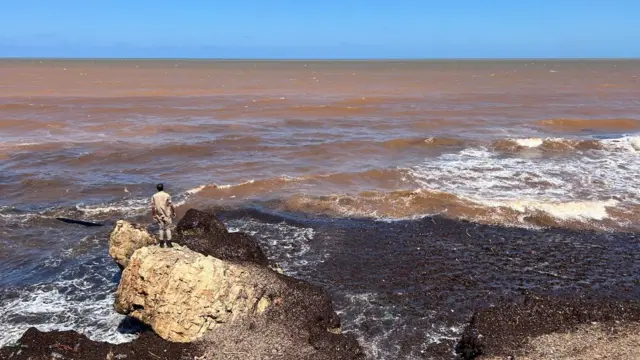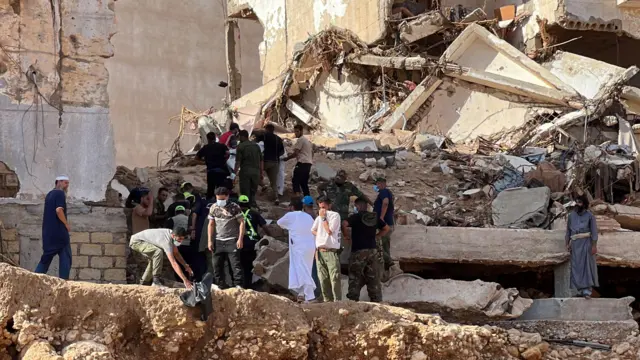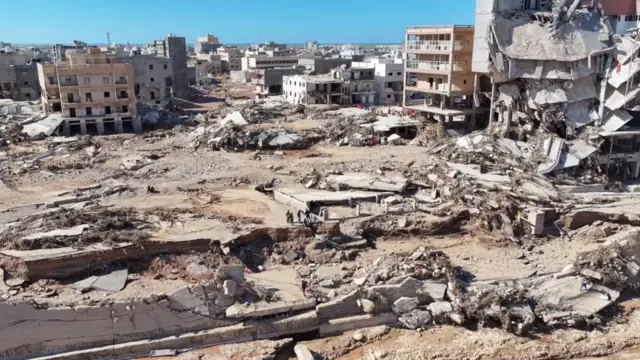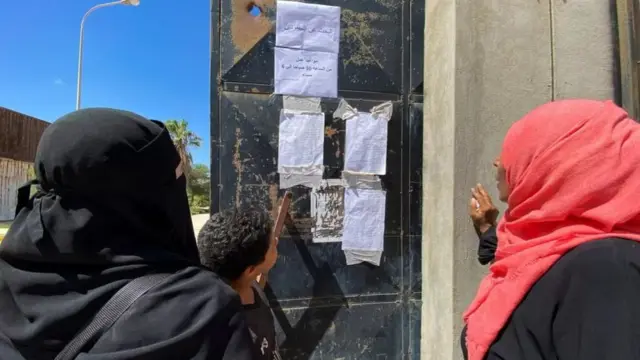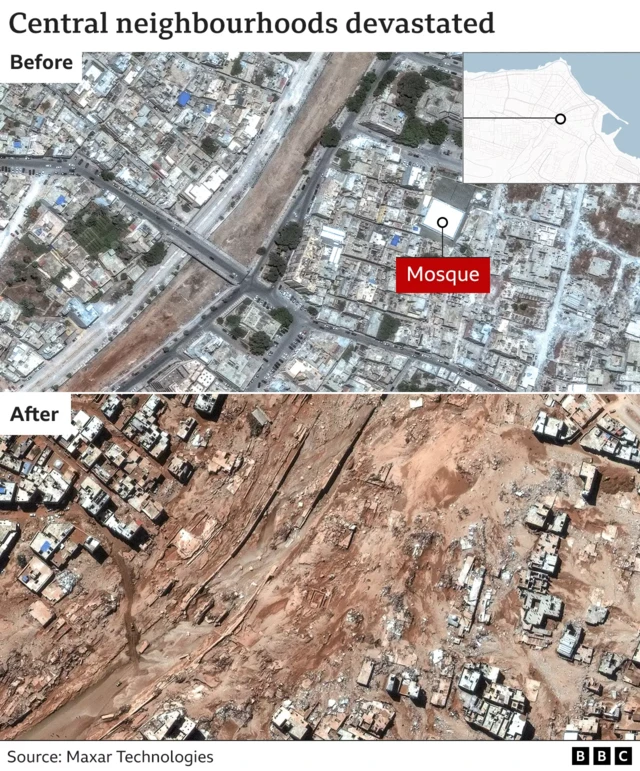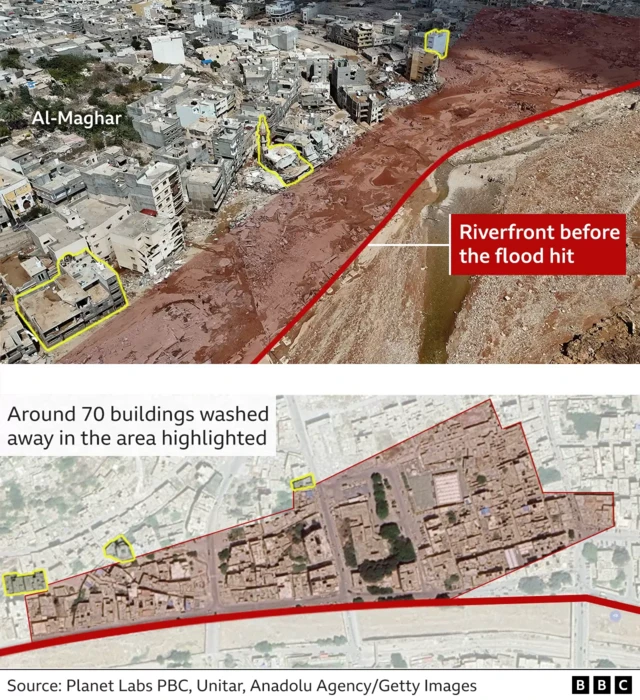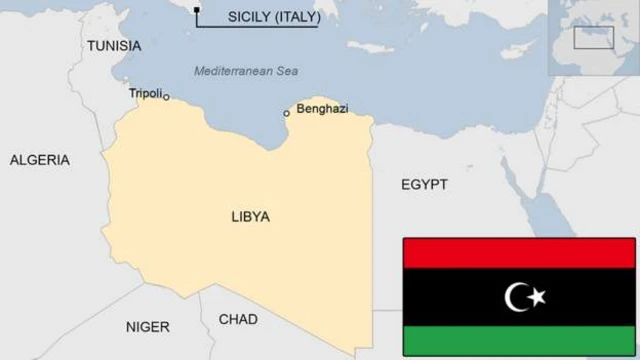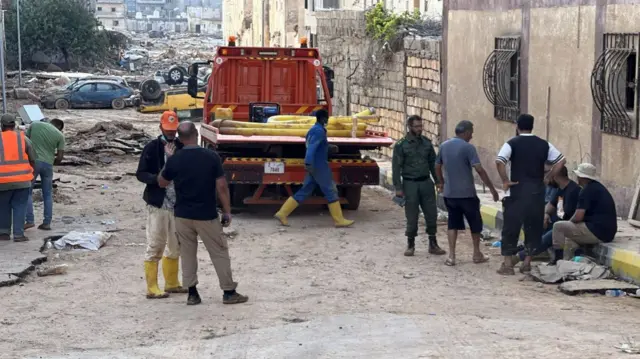Thousands of bodies being retrieved outside Dernapublished at 09:36 BST 15 September 2023
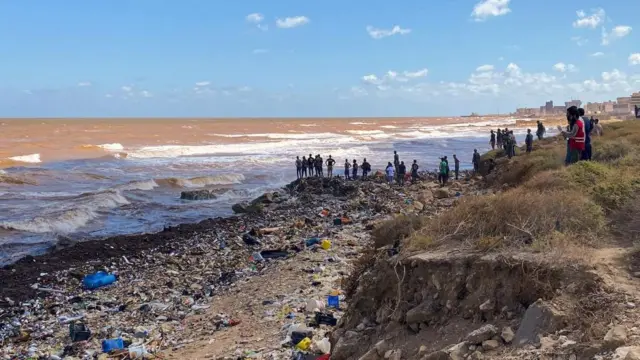 Image source, Reuters
Image source, ReutersThe Red Crescent is currently working to retrieve the thousands of bodies of victims that were washed out to sea in the Derna flood.
Many are washing up on the coastline of nearby towns. The head of the Libyan Red Crescent media centre in Derna, Salem al-Naas, says this is due to the "strong winds that were blowing that night".
"This is what we saw with our bare eyes," he says.
"We are still pulling bodies from houses and from under the rubble up to this moment," al-Naas adds.
